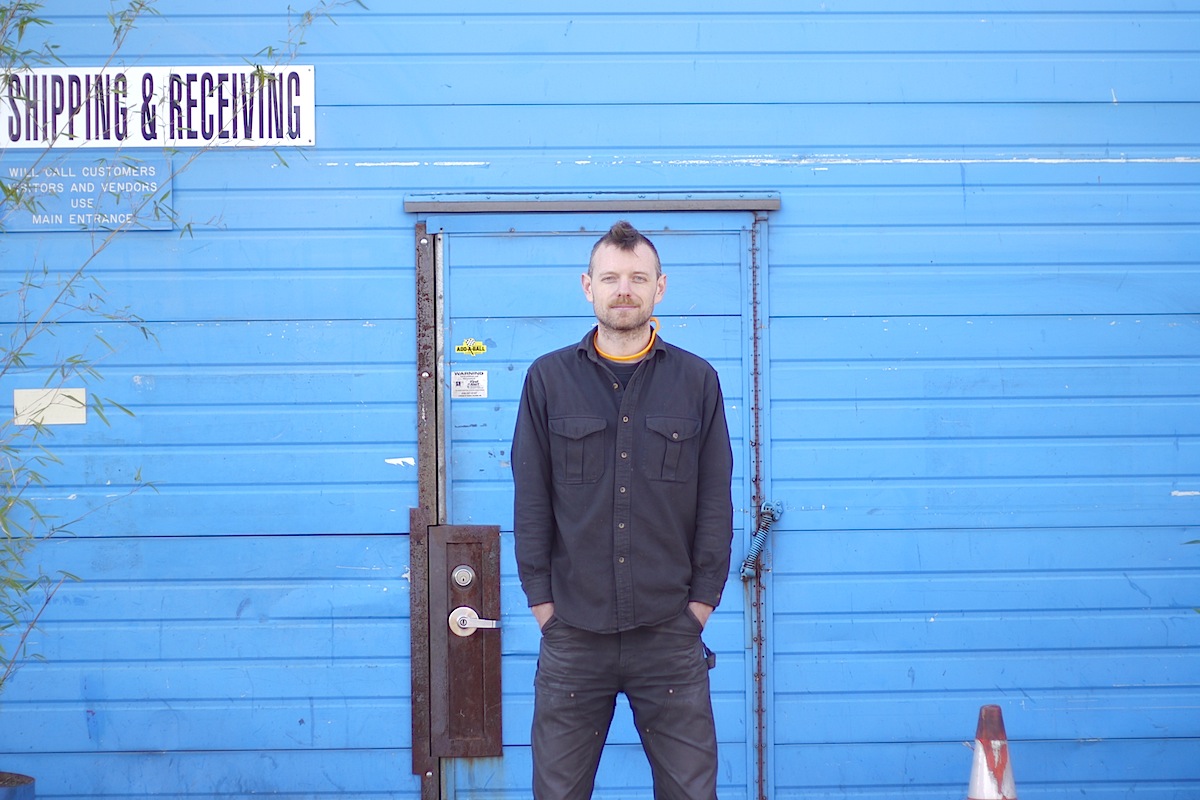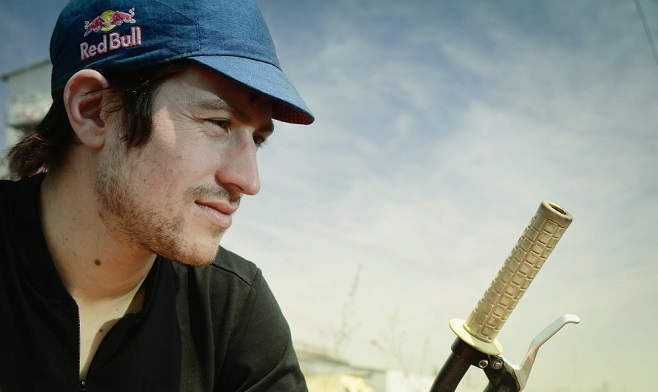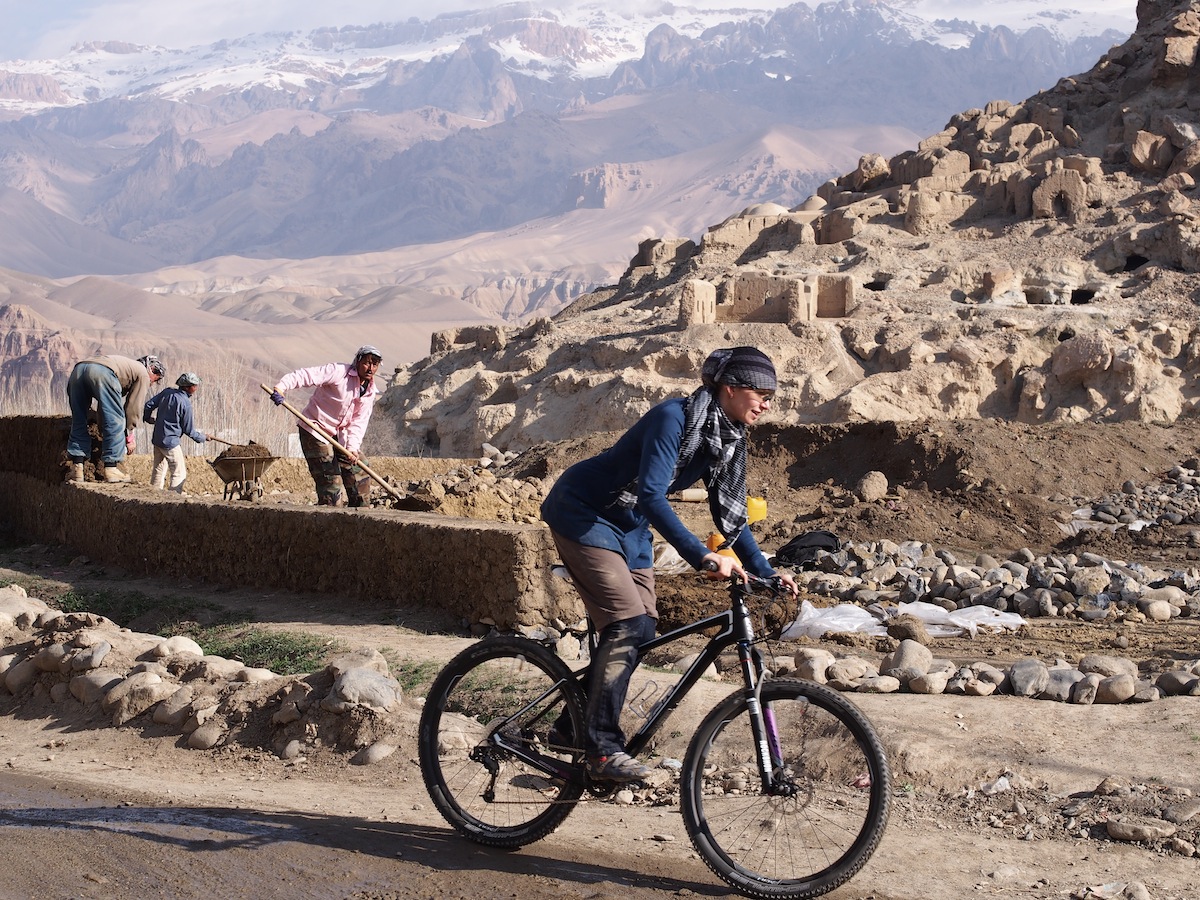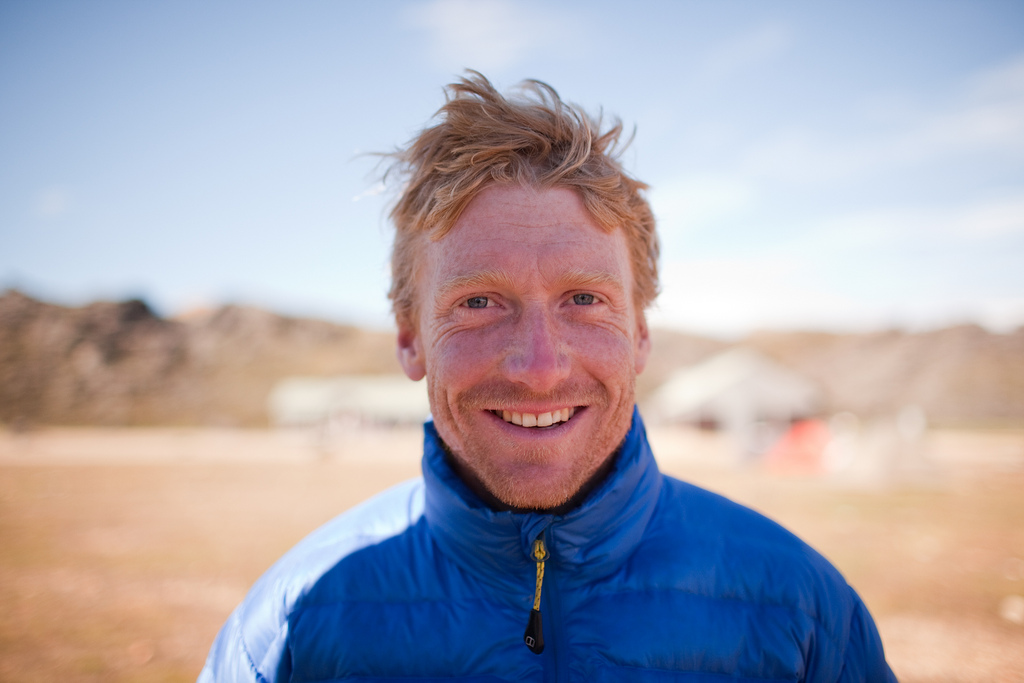
Colin Stevens outside Equinox Studios. Photo by Josh Cohen.
I don’t need to check the address to know I’m at the right place. Tucked away off the main drag in one of Seattle’s increasingly-rare industrial zones, the bright blue Equinox Studios stands out among its neighbors of weathered, post-war manufacturing buildings. It was once home to Mastermark Printing and Engraving. During World War II, Norton Bomb Sights built crosshairs for bombardiers in the building. As I walk down the hall, I catch glimpses into a few of the 36 shops and art studios the building now houses. Sparks fly in one room as a sculptor puts grinder to metal. In another, a woman pulls colorful wires from an array of spools, prepping for an espresso machine repair job. Inside studio 109 I find Colin Stevens fiddling around with some tools behind a small, but well stocked work bench. One room of their shop is filled with bikes, trailers mopeds and tools. The other with huge lathes and other similarly impressive machinery.
Stevens first made a name for himself with his Haulin’ Colin cargo trailers along with wild creations such as an 8-person, pedal-powered parade float. And though he still builds the custom trailers, his work has evolved far beyond. Today Stevens–along with friends Garth L’Esperance and Michael Nazaroff–is co-owner of CycleFab, LLC and does everything from repairing bike frames to building cargo trailers to metal fabrication and parts manufacturing. I sat down with him at his shop to talk about his path from computer science to industrial manufacturing, the recent rise of cargo biking, the difficulties of a niche bike business, the creative satisfaction of hands-on work, and much more.




